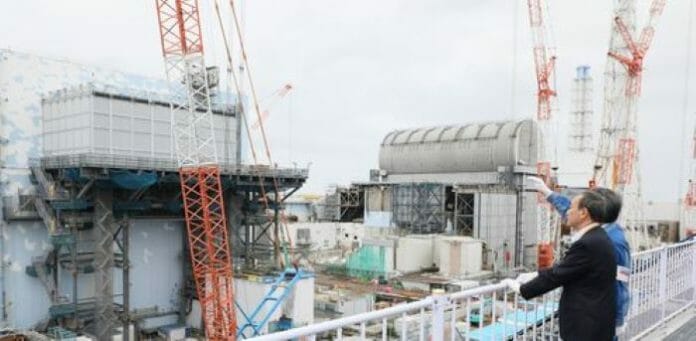It is “absolutely logical” that Japan’s plan to release treated radioactive water from its Fukushima nuclear plant is attracting great interest in the region, the head of the International Atomic Energy Agency (IAEA), Rafael Grossi, said on Sunday (Jul 9).
Grossi also said he understands concerns remain over the plan but added that a review by the IAEA released last week found it was “in conformity with international safety standards” if executed according to plan.
Grossi met with South Korea’s opposition Democratic Party members on Sunday who expressed strong public concerns over Japan’s plan and criticised the IAEA’s findings.
“The issue at hand today has attracted a lot of interest, and this is absolutely logical because the actions and the way in which Japan will be addressing this … have important implications,” Grossi said in the meeting.
A Democratic Party member who chairs a special committee on the issue said the IAEA’s findings had “shortcomings”, and the widespread public concerns over safety in the country were “legitimate and reasonable”.
“We deeply regret that the IAEA concluded Japan’s plan to discharge contaminated water from the Fukushima nuclear power plant meets international standards,” Wi Seong-gon, the committee chairman, told Grossi.
Grossi was met with angry protests by civic groups as he arrived in South Korea on Friday from Japan and drew street rallies on Saturday criticising the plan.South Korea’s government said on Friday it respected the IAEA’s report and that its own analysis had found the release will not have “any meaningful impact” on its waters.
Chinese foreign ministry spokesman Wang Wenbin on Wednesday criticised the move towards discharging the water and threatened action if the plan should move ahead.
North Korea also criticised IAEA’s backing of Japan’s plan, calling it “unjust” and a demonstration of double standards, citing the UN nuclear watchdog’s work to curb Pyongyang’s nuclear programme.
North Korea has faced UN Security Council sanctions for its six underground nuclear tests.
Source: Reuters









